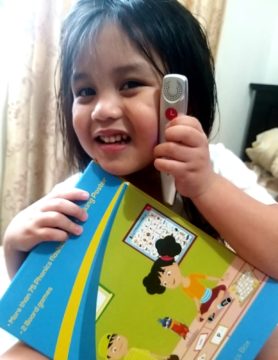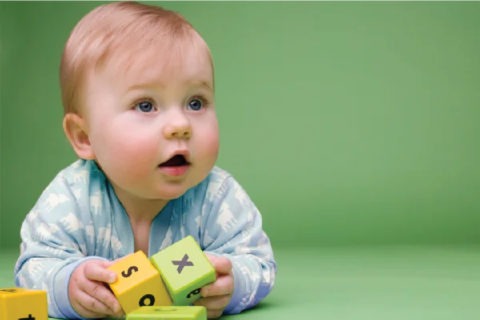
10 Benefits of Storytelling to Kids
December 10, 2020
Why Flashcards are Important for Toddlers
December 10, 2020Recent researches in brain development have pointed out that the human brain develops fastest between birth and three years. And, early education plays a key role during this very crucial development phase.
What is Early Childhood Learning?
Right from birth, your child learns by observing, playing and exploring in a safe and stimulating environment. Babies are born ready to learn, and their brain develops through usage. The foundation of your child’s development is the love and security you provide. Your child needs a stimulating environment with lots of different ways to play and learn.
Most often, the ways in which a child progresses during these years follows a common sequence; the child is born, crawls, walks, talks, etc.
Everything he/she learns later in life is built on the foundation laid in the first three years at home.
Your child learns best by actively engaging with his environment. This includes:
* observing things, watching faces, and responding to voices
* listening to sounds, making sounds, singing
* exploring e.g. putting objects in her mouth, shaking and turning things around
* asking questions – What? When? Why? How?
* experimenting with textures, objects, and materials like water, sand, dirt
* doing things that stimulates her senses – see, touch, taste, smell, hear, do
She learns from everything and everyone she interacts with; everywhere she goes.
What is the Purpose of Early Education?
Child experts say that early childhood education is the best way to help your child develop the social, emotional and cognitive skills needed to prepare for kindergarten and beyond. The purpose of early childhood education has a range of benefits. Besides early exposure to math, reading and science, children inculcate a wide variety of psychological, emotional, and social skills needed to help them throughout their life.
Children who start learning at an early age gain:
* Improved social skills
* Head-start in school
* Improved attention span
* Enthusiasm for lifelong learning
What is the Importance of Early Childhood Education?
A child’s early years are the foundation for his future development; including cognitive and social development. Well-established research continues to emphasize the importance of early childhood education as an important building block of a child’s future success.
Early childhood education is about honing and molding a holistic child, which eventually forms the basis for his lifelong journey. It’s an opportunity for him to learn to share, follow instructions, interact, and soak up the tools they’ll need to succeed in future. Here are six reasons why early childhood education is important:
- Promotes emotional and social development
- Children learn to cooperate, take turns, share and persevere
- Promotes cognitive and language skills
- Math and reading skills are developed
- Stimulates and encourages curiosity
- Prepares children for future schooling.
What is Early Childhood Development?
We’ve always been told, “Start as young as possible!” As important as this message is, is the encouragement given to the child to discover the fun of learning. The foundations of intelligence, personality, social behavior, capacity to learn, nurture oneself, are all laid down in these early years. And, these are what make an individual. It is a crucial phase in a child’s life as this is when they first learn to interact with others, including peers, teachers and parents, and also begin to develop interests that will stay with them lifelong.
Early Childhood Development is a Shared Responsibility
It lays the groundwork to continue throughout the child’s education.
One of the enduring findings from child development research is the importance of what researchers term ‘Make your kids future-ready’.
This involves a shared responsibility between parents and caregivers they trust; working together on curriculums and strategies designed to give the best results for children.
Should you be Investing in Early Childhood Education?
A child’s early years hold the key to their well-rounded holistic development and success in life. Pre-school is so much more than just playing. Children who are healthy and prepared when they enter Kindergarten excel in school and in life.
Whether your child is starting school next year, or in a couple of years, consider giving them a head-start by providing them Learning Time materials that provides high quality early childhood education in a fun, engaging and interactive environment.




